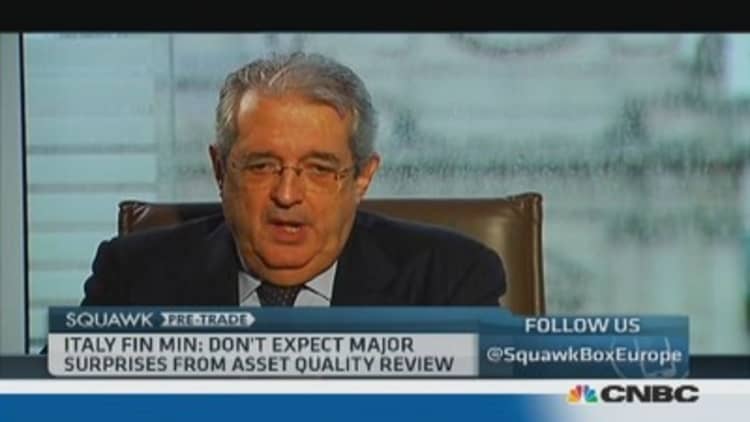
Italy's economy and finance minister, Fabrizio Saccomanni, said that there had been no "political assassination" at Italian bank Intesa Sanpaolo when Enrico Cucchiani was ousted as chief executive in September.
Cucchiani resigned from the Italian retail bank in September after two years in the job over clashes with board members who own 5 percent of the bank over his management style and the bank's strategy and was replaced by the group's chief financial officer, Carlo Messina. At the time Intesa refused to comment on the reasons behind the CEO's departure.
The ownership structure of Italy's banks has raised concerns of undue external influence. A large number of Italian lenders set up privatized trusts overseen by leading industrialists to help handle the transition from state to private control during the 1990s. These trusts were only meant to handle the transition, but have instead remained in place, years after they should have been disbanded.
Since World War II, the banking system has acted to block foreign takeovers of Italian companies by allowing the companies increased funding to see off bids.
(Read more: Italy's banks won't fail stress tests: Saccomanni)
Italy's finance minister denied that the bank had been under external pressure to change Intesa's leadership in order to restore faith in the bank's future.
"I don't want to comment specifically on any individual institutions in Italy [but] I think the reference to assassinations seems too far-fetched," Saccomanni told CNBC. "I think there was certainly change in the top management because of disagreements within the bank about how to reorganize the structure of the banks, this is a normal process."
Saccomanni said that Cucchiani had played an important role when he joined the bank, making an "important contribution in stabilizing expectations in the role of the banks."
"But like all Italian banks, the important need is to reorganize the domestic lending of the banks. This is where I think different views came in the board and I think it was a normal and rather peaceful transition," he insisted.
Follow us on Twitter: @CNBCWorld


